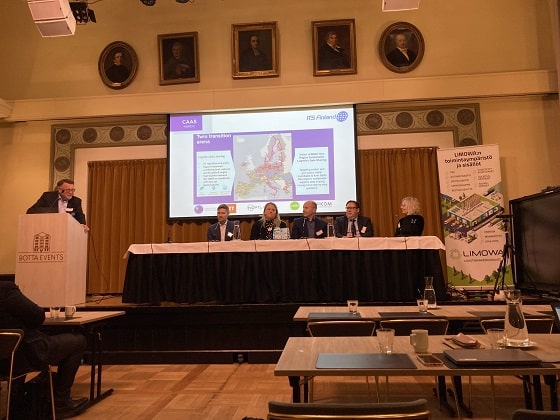A new project focusing on green transition and digitalization of transport, with a NDPTL Secretariat role, launched its activities today with a dedicated workshop on the potential for piloting regional exchange of freight transport data, using transport emission data as the low hanging fruit on regional transport data exchange. Such a regional piloting within the Baltic Sea area may catalyse European and even global progress in tapping into synergies between digital exchange of freight transport data and green transition.
The workshop suggested creation of a regional policy roundtable on regional exchange of freight transport data relevant for emissions, with NDPTL Secretariat together with CaaS Nordic calling to the first meeting, to formulate a joint step-by step roadmap -for potential further elaboration and implementation by regional projects.
The project “Advancing green transition and digitalization on the transport corridor of the Baltic Sea Region” (“IBA-3”) funded by the Finnish Ministry of Foreign Affairs will be implemented 2023-2024 by VTT research, Vediafi and the NDPTL Secretariat under the lead of Finnish Transport and Communications Agency. The workshop took place today in connection to the DigiLog2 event.
The overall project will advance cooperation in the ND area around three topics:
1) facilitating the exchange and use of digital freight transport information
2) develop the use of digital freight transport information as a data source enabling calculations, and reductions, of carbon footprint of transport services and
3) improve the transboundary awareness of the systemic transition required by the green transition and digitalization in transport and logistics among national administrations and stakeholders in the countries neighbouring Finland.
The NDPTL Secretariat will be responsible for developing the roadmap and implementation plan for sustainable and smart transition of transportation in the wider Northern European area via dedicated workshops, to be organised in 2024 and which aim to engage the relevant countries but also regional actors.

